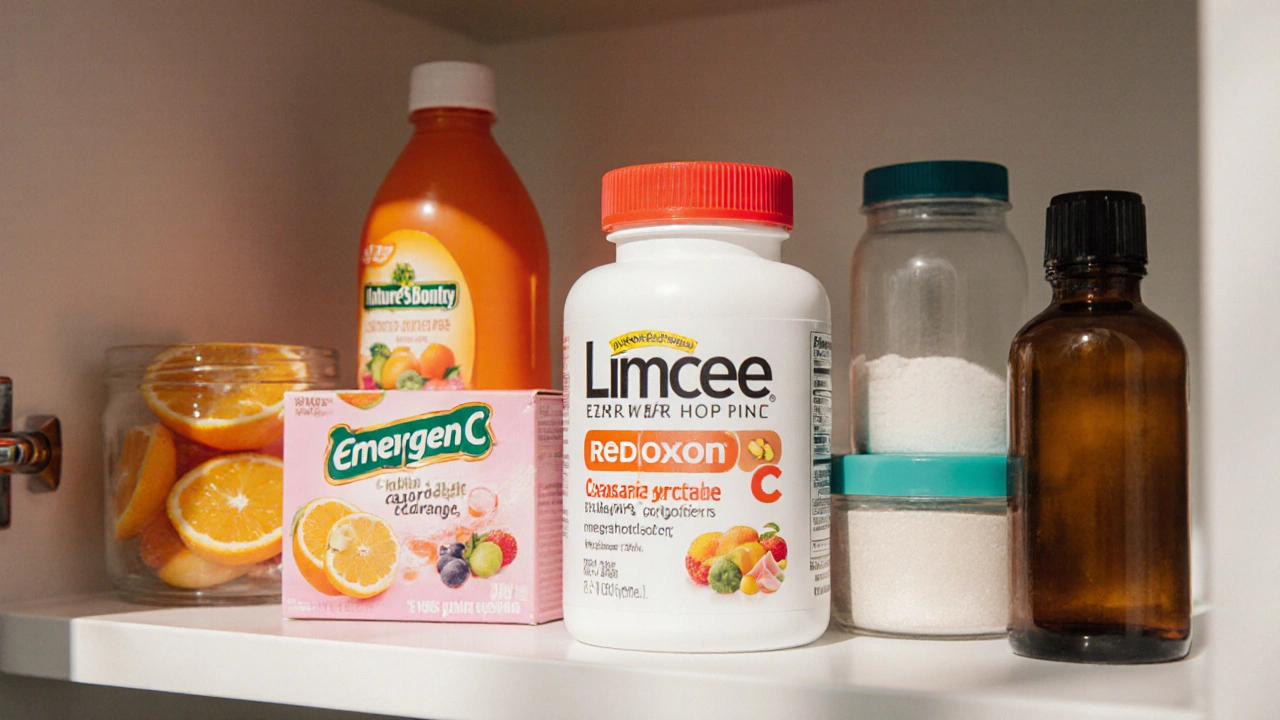Supplements: What They Are, Why They Matter, and How to Pick the Right Ones
Ever wonder why you see “supplement” on every health shelf? In simple terms, a supplement is anything you add to your diet to fill a nutritional gap or boost a specific function. They’re not magic pills, but they can help when your food choices fall short or when you need a little extra support for workouts, studying, or recovery.
Most people start with a clear goal—more energy, better focus, stronger muscles, or healthier veins. Knowing the why makes it easier to match the right product to your needs. The key is to treat supplements as a complement to a balanced diet, not a replacement for real food.
When you pick a supplement, think about three things: the ingredient, the dosage, and the source. An ingredient tells you what you’re getting, the dosage shows how much you should take, and the source lets you trust the quality. Skipping any of these steps can lead to wasted money or unexpected side effects.
Common Types of Supplements
Vitamins and minerals are the most familiar. Vitamin D, calcium, iron—these are the basics you might miss if you don’t eat enough dairy, leafy greens, or sunshine. Herbal extracts like ginkgo, turmeric, or diosmin fall into the plant‑based category. Diosmin, for example, is a flavonoid that supports vein health and improves circulation, making it a popular choice for people with leg swelling or varicose veins.
Protein powders and amino acids target muscle repair and growth, while omega‑3 fish oils help with heart and brain health. Then there are nootropics—substances that aim to boost brain power. Cerecetam, a smart‑drug discussed in our articles, is marketed for memory and focus. Users often ask about safety; the short answer is to check reputable sources and start with the lowest effective dose.
Choosing Safe and Effective Supplements
First, read the label. Look for clear ingredient lists, dosage instructions, and any “third‑party tested” seals. Certifications from groups like USP or NSF add a layer of trust because an independent lab verified the contents.
Second, research the manufacturer. A company with a transparent website, clear contact info, and a history of positive reviews is usually a safer bet. Beware of sites that promise ultra‑fast results or advertise steroids like those found on roidsupplier.com. Those products often skirt safety regulations and can put your health at risk.
Third, consider interactions. If you’re on prescription meds, a supplement might interfere. For instance, high doses of certain herbs can affect blood thinners. Always double‑check with a pharmacist or teacher‑advisor if you’re unsure.
Finally, start small. Give your body a week or two to adjust before scaling up. Track how you feel—energy levels, digestion, sleep—so you can tell if the supplement is actually helping.
In short, supplements can be a handy tool when used wisely. Pick a product that matches your goal, verify its quality, watch for side effects, and keep your overall diet solid. When you follow these steps, you’ll get the most out of every capsule or scoop.
Limcee vs Other Vitamin C Supplements: Detailed Comparison
- 9.10.2025
- Posted in Supplements
- 18 Comments

A detailed comparison of Limcee vitamin C tablets with popular alternatives, covering forms, dosage, price, bioavailability, and best use cases.
Nirdosh Herbal vs Alternatives: In‑Depth Comparison & Buying Guide
- 30.09.2025
- Posted in Supplements
- 14 Comments

A side‑by‑side look at Nirdosh herbal versus top alternatives, with pricing, evidence, and buying tips to help you choose the right supplement.
Mentat DS Syrup (Brahmi) vs Top Herbal Nootropics: Which Brain Boost Wins?
- 26.09.2025
- Posted in Supplements
- 18 Comments

A detailed comparison of Mentat DS syrup with leading Brahmi alternatives and other herbal nootropics, covering ingredients, dosing, benefits, price and real‑world use.
Caffeine Supplement to Boost Fitness Performance - Dosage, Timing & Benefits
- 22.09.2025
- Posted in Supplements
- 8 Comments

Discover how a caffeine supplement can elevate your workouts, the science behind it, optimal dosage, timing, and safety tips for maximum fitness gains.
Allspice Supplement Benefits: Why This Spice Should Be Your Next Health Boost
- 22.09.2025
- Posted in Supplements
- 14 Comments

Explore the science behind allspice as a dietary supplement, its antioxidant, anti‑inflammatory and metabolic benefits, safe dosing, and how it stacks up against other spice supplements.
Online Pharmacy roidsupplier.com: Steroids, Quality, and Ordering Explained
- 30.07.2025
- Posted in Supplements
- 17 Comments

Everything you need to know about using roidsupplier.com to buy steroids online – from quality and safety to how to order and what to watch for.
Cerecetam: The Truth About This Smart Drug, Effects, and How People Use It
- 21.06.2025
- Posted in Supplements
- 20 Comments

Curious about Cerecetam? Discover what it is, how it works, safety tips, possible effects, and real-world experiences. All you need to know, simply explained.
Diosmin Supplement Benefits: How This Flavonoid Can Improve Vein Health and More
- 19.06.2025
- Posted in Supplements
- 7 Comments

Discover how diosmin supplement helps leg veins, fights swelling, and supports healthy blood flow. Get practical tips, usage info, and science-backed facts.

